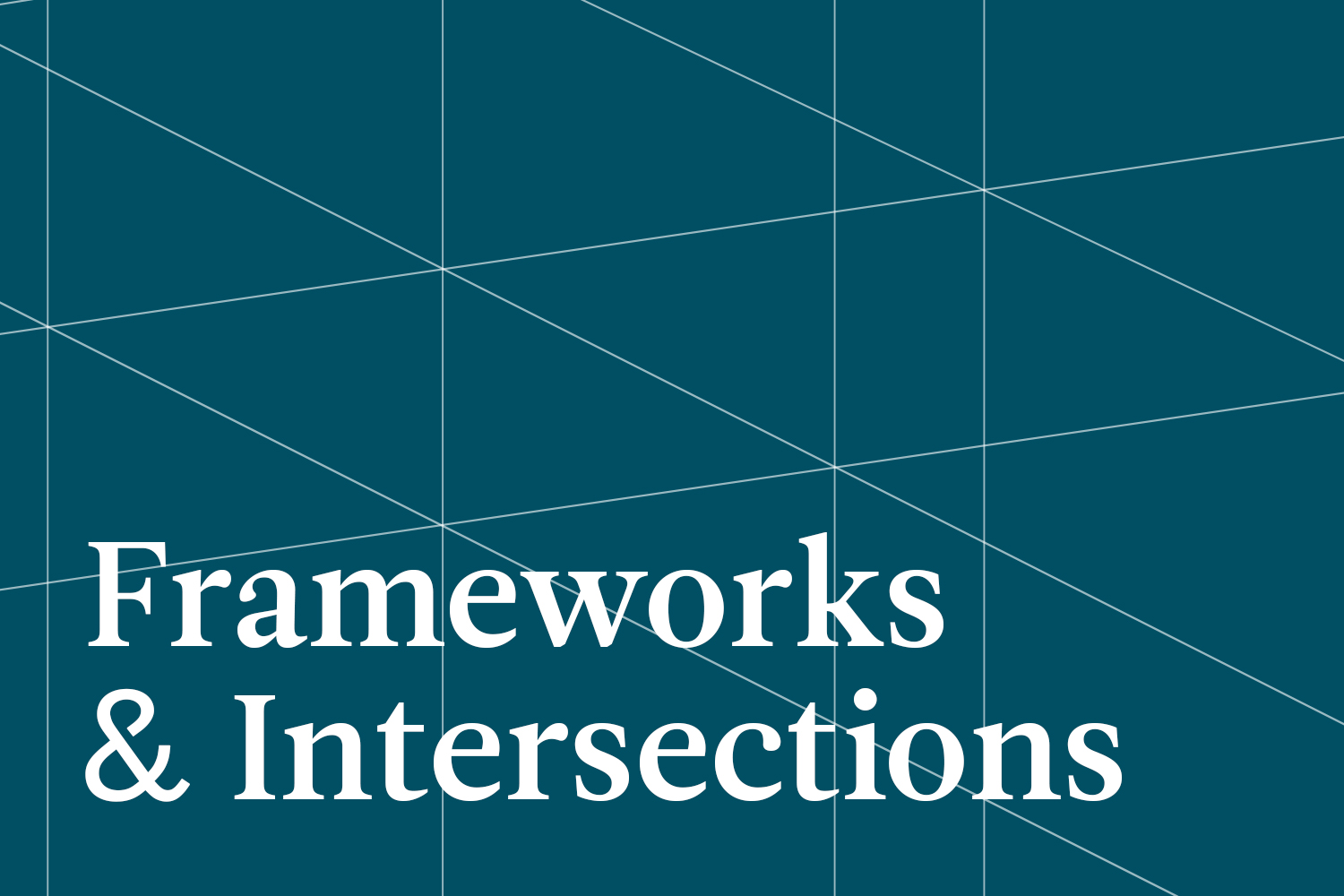This fall, all incoming students will attend “Frameworks & Intersections,” a two-day course intended to provide new students with context for their time at The Seattle School, introduce the school’s pedagogy and learning methods, and provide academic resources and other information to help students be successful in the classroom. Frameworks & Intersections serves as a continuation of new student’s introduction to The Seattle School during Orientation, for new students, and (Re)Orientation, for new and returning students, which takes place before classes begin for the fall term.
Topics to be covered include: the intersections of text, soul, and culture; writing resources; art on campus and in the classroom; Practicum learning outcomes; and intercultural credibility in community. In addition, students will be introduced to the use of story and narrative as a learning tool toward the integration of personal story and existing bodies of knowledge. Each of the topics explored will feature a panel made up of faculty and staff to translate these conversations into their particular realms.
This introductory course, which will be led by Academic Dean Dr. J. Derek McNeil and Registrar Kristen Houston, has been developed over the past few years by the Student Services committee, which is made up of the Dean of Students and Alumni, the Registrar, the Academic Dean, the Director of Student Financial Services and the Director of Enrollment Services. It is the intention that Framework & Intersections, a requirement for new students, will serve as scaffolding as students begin their academic career at The Seattle School in order to set them up for success in the classroom and beyond.
“We’re trying to provide more scaffolding or tools. And they’re more meta tools—ways of thinking about your thinking, as opposed to simply the content.”
“We realized that sometimes our students will struggle at the front end, figuring out what in the world we’re asking them to do, whether it be Practicum or the core first-year courses,” explained Dr. McNeil when asked about the impetus for Frameworks & Intersections. “I wasn’t sure if they were getting a strong sense of what text.soul.culture was about, and I wasn’t sure if they were getting enough tools early on to figure that out. One of the ways we thought we could help with that was to provide some [continuing] orientation. We’re trying to provide more scaffolding or tools. And they’re more meta tools—ways of thinking about your thinking, as opposed to simply the content.”
The style of academic engagement at The Seattle School is based on discourse. “I think you have to model discourse for people,” Dr. McNeil said. “People need to see it and experience it and they have to recognize that even though you may not always be talking about direct content, there are both skills being learned and knowledge being gained. It’s about learning from each other as opposed to, say, an old model where the teacher has expert knowledge and they give it to the student and the student then has to memorize well. Sure, there’s some expert knowledge in the room, but it’s not so expert that it’s not engaged with or interacted with. Most learners begin the learning process with the knowledge that they know, and so we’re asking people to discourse—to bring the knowledge that you know and engage new knowledge and to make it a collaborative experience.”
Dr. McNeil found inspiration and continuity by looking to The Seattle School’s rich history. “In a sense,” Dr. McNeil continued, “we are going back to the guild that started the school. That guild had a high value for talking to each other and learning.”
“The reason you do interdisciplinary education is because it’s problem-focused. We brought theology and psychology together to deal with and respond to human woundedness, trauma, healing, revitalization, and restoration.”
In addition to a value for discourse, Frameworks & Intersections will introduce incoming students to interdisciplinary education, a growing value for The Seattle School of Theology & Psychology, whose name speaks to conversation between the two disciplines. “The reason you do interdisciplinary education is because it’s problem-focused,” Dr. McNeil said. “In other words, you bring disciplines together to, in some ways, try to find a common language on a particular issue. For instance, we brought theology and psychology together to deal with and respond to human woundedness, trauma, healing, revitalization, and restoration.”
This emphasis on interdisciplinary education is something that sets us apart from other seminaries, Dr. McNeil said. “I think respecting two disciplines and trying to integrate the two is a little bit of a different conversation [in higher education]. But I think it’s needed because it’s more focused on problems and addressing, say, woundedness, abuse, fragmentation, or a culture in which people are struggling with hopelessness. We don’t have all of the ‘pat’ answers that we used to, and we are asking questions that are no longer fed by the old answers. We need to begin a new conversation and ask, ‘What are the questions that we should be asking?’ and ‘Who are the partners we need to engage with beyond a single discipline?’”
The Seattle School of Theology & Psychology seeks to continuously invite its students into such conversations, and it is the hope of the Student Services Team that the introductory Frameworks & Intersections course will provide a firm foundation upon which incoming students can begin to engage text.soul.culture in both the classroom and within their own story as they seek to discover the intersections of their work in the world.
Frameworks & Intersections will take place during the second and third week of the fall term, on Friday September 12 and Friday September 19 from 9:00am-12:00pm.

